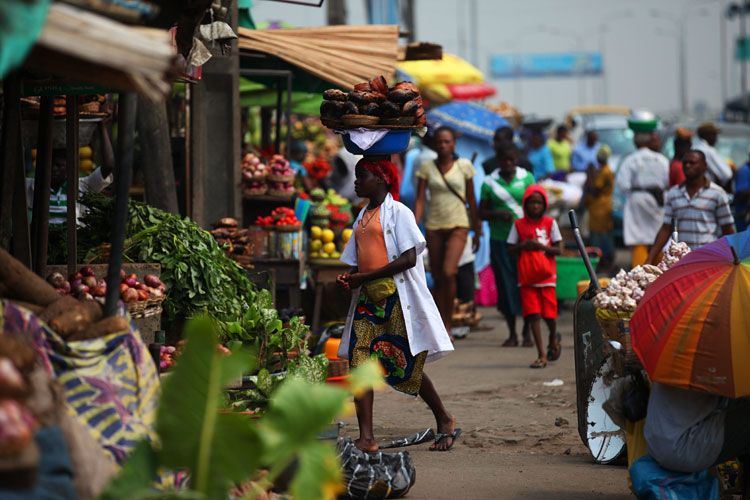Prices of food and other commodities have hit the roof top as an all time high inflation rate hits Nigeria.
According to Nigeria’s National Bureau of Statistics (NBS) the country’s inflation rate in July was 19.64% – the highest rate since September 2005.
A NBS report found the highest increases were for necessities like food, fuel, transportation and clothing.
Food prices have risen steadily in Nigeria for years, due to the effects of climate change, the COVID-19 pandemic and widespread insecurity.
Abuja resident James Orshio who earns the equivalent of about $50 a month from his sales job said his salary can no longer cushion economic pressures.
“There’s a lot of challenges now due to the increment [increases] of prices; I cannot even talk of going to the market now to buy something to feed myself because the prices are not encouraging at all,” he said. “A loaf of bread that used to be 300 naira is now 1,000 naira. Even some of the bakers in Abuja are not working because of the high price.”
In a bid to address inflation, Nigeria’s Central Bank (CBN) has been tightening monetary policy by increasing interest rates from 11% in January to 14% in July.
Akintunde Ogunsola, founder of Abuja-based financial consulting firm Karma Professional Service, explained the reason for the CBN’s policy.
“What is happening is that we have too much money in circulation chasing a few goods, and that’s what causes inflation,” he said.
“There is scarcity in supply and that’s why CBN is using the open market operation to reduce the money in circulation by increasing [the] interest rate so that people will be saving money back into the bank, like mopping up money from the economy.”
Nigeria’s import-dependent economy has been further hit by currency devaluation. The naira has lost more than 30% of its value in seven months.
“It’s not only in Nigeria alone that we’re experiencing this,” he said. “The United States’ inflation is also going up. Even our neighbors, Ghana, their inflation rate is already over 30%.”
In March, the World Bank estimated that about 4 out of 10 Nigerians live below the national poverty line.
Experts predict the inflation rate will increase further in coming months and may put many more Nigerians on the brink of poverty.


